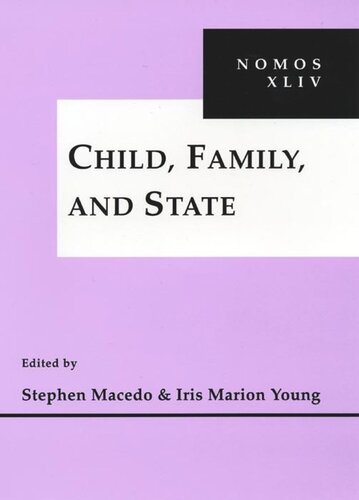

Most ebook files are in PDF format, so you can easily read them using various software such as Foxit Reader or directly on the Google Chrome browser.
Some ebook files are released by publishers in other formats such as .awz, .mobi, .epub, .fb2, etc. You may need to install specific software to read these formats on mobile/PC, such as Calibre.
Please read the tutorial at this link: https://ebookbell.com/faq
We offer FREE conversion to the popular formats you request; however, this may take some time. Therefore, right after payment, please email us, and we will try to provide the service as quickly as possible.
For some exceptional file formats or broken links (if any), please refrain from opening any disputes. Instead, email us first, and we will try to assist within a maximum of 6 hours.
EbookBell Team

4.4
92 reviewsThe forty-fourth volume in the esteemed NOMOS series considers the philosophical, political, and legal dilemmas of the changing definition of "family" today.
In an era in which our conception of what constitutes a “normal” family has undergone remarkable changes, questions have arisen regarding the role of the state in “normalizing” families through public policy. In what ways should the law seek to facilitate, or oppose, parenting and child-rearing practices that depart from the “nuclear family” with two heterosexual parents? What should the state's stance be on single parent families, unwed motherhood, or the adoption of children by gay and lesbian parents? How should authority over child rearing and education be divided between parents and the state? And how should the state deal with the inequalities that arise from birthright citizenship?
Through critical essays divided into four parts-Adoption, Race, and Public Policy; Education and Parental Authority; Same Sex Families; and Birthright Citizenship-Child, Family, and State considers the philosophical, political, and legal dilemmas that surround these difficult and divisive questions. An invaluable resource in these contentious debates, Child, Family, and State illuminates the moral questions that lie before policymakers and citizens when contemplating the future of children and families.